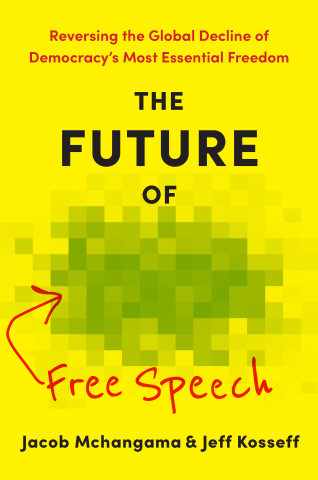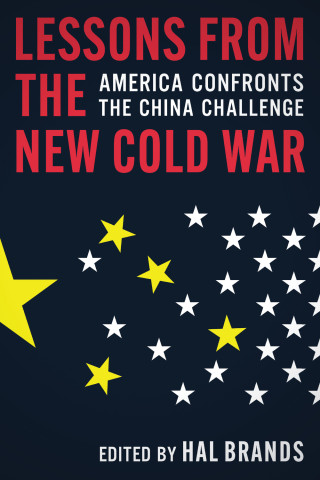
Reviews
A tour de force not merely because of the depth of the scholarship and the skill of the argument but also because Laruelle unveils a subject crucial to understanding today's Russia but never given proper due... Even the most serious student of contemporary Russia will get from this book a vastly deeper sense of what makes Russian intellectual life, for all of its vexed affinity with the West, fundamentally different.
A masterful job of describing the various philosophical threads of Eurasianism... The author's lucid style makes the book accessible to the educated general public.
This volume certainly engages the reader to explore... Laruell's deft treatment of Eurasianism's shifting position in contemporary discourse makes this a fascinating volume that extends beyond the boundaries of any single academic discipline.
Laruelle is to be congratulated on her lucid and intellectually disciplined discussion of the ambiguous, intricate, and often contradictory ideas that shape Russian Neo-Eurasiansim... a must-read for intellectual historians, policymakers, cultural scholars, Russia Watchers, or for that matter, anyone who uneasily senses that something is moving in the deep currents beneath the surface of contemporary Russia, but is not sure of what it is.
Russian Eurasianism is a lucid and rational guide, based on thorough scholarship and an admirable reluctance to sensationalize or to claim too much.
A richly interdisciplinary and meticulously researched analysis of both the historical and contemporary sources of Eurasianist cultural and philosophical/ideological traditions and discourse... this book will be an invaluable resource for policymakers and academics providing a deeper understanding of the forces shaping Russia's identity and the unfolding of circumstances for the entire Eurasian region.
Laruelle, an established authority in the field.
An impressive achievement. The author writes with an erudition and breadth of insight that is unique in the burgeoning field of what we might call 'Eurasianism studies.'
Extremely informative and enlightening reading.
The importance of this work lies in the remarkable, even extraordinary, research effort that underpins its writing. The work’s best features are the breadth of its coverage and the trenchancy of its analysis.
This book is an impressive achievement—wide-ranging yet sensitive to context and careful to bring together the many varieties of Eurasianism that have emerged over the 20th century. Laruelle makes us see why and how the idea of empire continues to appeal in post-Soviet space.
Book Details
Acknowledgments
Introduction: Eurasianism—Marginal or Mainstream in Contemporary Russia?
The Historical Roots of the Eurasianist Idea
Neo-Eurasianism and Its Place in Post-Soviet Russia
Neo-Eurasianist
Acknowledgments
Introduction: Eurasianism—Marginal or Mainstream in Contemporary Russia?
The Historical Roots of the Eurasianist Idea
Neo-Eurasianism and Its Place in Post-Soviet Russia
Neo-Eurasianist Doctrine and Russian Foreign Policy
Marginal or Mainstream?
Premises of This Study
Plan of the Book
1. Early Eurasianism, 1920–1930
The Life and Death of a Current of Thought
A Philosophy of Politics
A Geographic Ideology
An Ambiguous Orientalism
Conclusions
2. Lev Gumilëv: A Theory of Ethnicity?
From Dissidence to Public Endorsement: An Atypical Biography
"The Last Eurasianist"?
Gumilëv's Episteme: Subjecting the Humanities to the Natural Sciences
Theories of the Ethnos or Naturalistic Determinism
The Complex History of the Eurasian Totality
Xenophobia, Mixophobia, and Anti-Semitism
Gumilëv, Russian Nationalism, and Soviet Ethnology
Conclusions
3. Aleksandr Panarin: Philosophy of History and the Revival of Culturalism
Is There a Unified Neo-Eurasianist Theory?
From Liberalism to Conservatism: Panarin's Intellectual Biography
"Civilizationism" and "Postmodernism"
Rehabilitating Empire: "Civilizational" Pluralism and Ecumenical Theocracy
Highlighting Russia's "Internal East"
Conclusions
4. Aleksandr Dugin: A Russian Version of the European Radical Right?
Dugin's Social Trajectory and Its Significance
A Russian Version of Antiglobalism: Dugin's Geopolitical Theories
Traditionalism as the Foundation of Dugin's Thought
The Russian Proponent of the New Right?
Fascism, Conservative Revolution, and National Bolshevism
A Veiled Anti-Semitism
Ethno-Differentialism and the Idea of Russian Distinctiveness
Conclusions
5. The View from "Within": Non-Russian Neo-Eurasianism and Islam
The Emergence of Muslim Eurasianist Political Parties
The Eurasianist Games of the Russian Muftiates
Tatarstan: The Pragmatic Eurasianism of Russia's "Ethnic" Regions
Conclusions
6. Neo-Eurasianism in Kazakhstan and Turkey
Kazakhstan: Eurasianism in Power
The Turkish Case: On the Confusion between Turkism, Pan-Turkism, and Eurasianism
Conclusion: The Evolution of the Eurasian(ist) Idea
The Unity of Eurasianism
Organicism at the Service of Authoritarianism: "Revolution" or "Conservatism"?
Nationalism: Veiled or Openly Espoused: The Cultural Racism of Eurasianism
Science, Political Movement, or Think Tank?
Is Eurasianism Relevant to Explanations of Contemporary Geopolitical Change?
Psychological Compensation or Part of a Global Phenomenon?
Notes
Bibliography
Index





